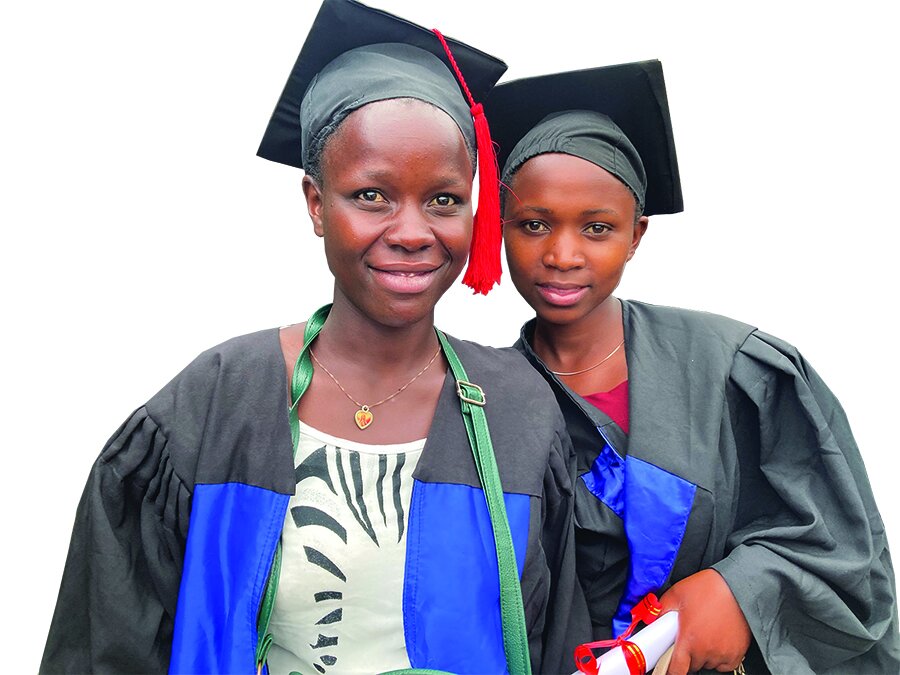“Unity, networking, training, and a heart seeking what is important to God! Each participant to the Global Conference brought an open heart and mind to receive what God promised,” according to Tamara Faris, Memory Books founder and Global Conference coordinator. “Each and every aspect of the conference was designed to communicate love and appreciation for the pastors, leaders and facilitators who use or are being trained to use Memory Books or host Memory Book Clubs. We wanted everyone to leave the conference cared for and encouraged.”
About 35 pastors, leaders and volunteers attended the first-ever Memory Books Global Conference in September 2023, representing nine countries: Rwanda, Burundi, Kenya, Malawi, Tanzania, Uganda, Democratic Republic of the Congo, Nigeria, and the United States. Most of the participants had not met each other before the conference. The goals of the conference were to discover God’s purpose and future plans for Memory Books for Children during times of training, networking, prayer and fellowship. Special thanks to local hosts Pastor Emmanuel Sitake and Pastor Francis Ntyahera in Kigali, who tirelessly provided assistance, transportation, and in so many ways supported the Memory Books Administrative Team and participants.
Memory Books founder, Tamara Faris
“What a privilege to summit the mountaintop with each participant. I still shudder with awe when I think of the closing conference message: we are living stones. With Jesus Christ as the Living Stone, the Cornerstone, we can continue to build this outreach to children everywhere to communicate that each one is somebody, each one is loved, and each one is chosen,” according to Tamara. “However, we know that great challenges face the pastors and Memory Book volunteers as they encounter children and others in their communities in the midst of grief and loss. The Memory Book Team and I will be available the help supply additional training and resources for Memory Book Clubs to be created or to continue.”
Rwanda Rise dancers showcase Rwandan history and culture—and invite the audience to participate!
ENRICHING EXPERIENCES
Dustin and Andrea Rose (top left) provide music for times of reflection and worship.
• Musicians Dustin and Andrea Rose invited participants into times of reflection and worship at the end of each main session.
• The Rwanda Rise dancers, drummers, and singers and their lively and entertaining performances that showcase Rwandan culture.
• A tour of the classrooms and educational areas at Hope Vocational Training Center in Kabuga, Rwanda. Culinary students prepared and served a delicious lunch for conference participants.
Rise and Shine Youth Dancers share a creative message of hope.
• The Rise and Shine Youth Dancers from Cityreach Church in Kigali, whose messages of hope and acceptance in Jesus were artistically demonstrated in drama and dance.
• Meals and morning devotions together. What a joy to watch conference participants engage in conversation, laugh, and enjoy new friendships while sharing meals.
• The servant-hearted and elegant “Protocol” Conference Assistants from the Hope Vocational Training Center.
PARTICIPANT REFLECTIONS
Hannah Ssali demonstrates how to get down to a child’s level with the French and Kinyarwanda translators following her lead!
• Different approaches to help/love children, including speaking, listening, playing, and literally getting down to a child’s level.
• I may be hurting and grieved, but I can heal (healing of the heart).
• If I cannot forgive myself, I can’t pass it on.
• Love myself, then pass it on to others.
• There is hope for a greater glory after hurts and grief.
• I am somebody; God has good plans for me.
• Resting/self-care is important.
• Art of listening.
• Surrender to transformation.
• No matter where we come from, we are all the same.
• Effective participation methods to engage individuals and groups.
• Helping traumatized children according to age groups.
• Patience!
• Many children suffer in Africa, and Memory Books for Children provides an opportunity to help children heal.
AMAZING OPPORTUNITIES TO LEARN AND GROW!
Participants welcomed opportunities to learn about forgiveness, surrendering to the transformation that God offers, finding hope in the midst of grief and loss, and the value of loving ourselves. Breakout sessions (pictured above) focused on relationship building through active listening skills practice, learning techniques for engaging children in telling their stories of grief and loss, and participating in a sample Memory Book Club.
MEMORY BOOKS NEXT STEPS
- Monthly connection and training via email have been offered to coordinators and leaders for Memory Books and Memory Book Clubs during 2023, and will continue. These communications are intended to encourage as well as offer skills and techniques that are part of creating safe and affirming spaces for children to share their stories.
- Develop an ongoing outreach to all coordinators to encourage them as well as invest in their spiritual growth.
- Initiate an Authorized Trainer approach to build consistency of training among all volunteers and operations of a Memory Book Club. An Authorized Trainer Seminar for country coordinators is being planned for February 2024 in Kigali, Rwanda.
- Visit all current Memory Book Clubs in 2024 to assess additional support needed to help ensure positive outcomes for children and teens.
- Tamara and Ron continue to process requests for Memory Books and Memory Book Club resources as they are presented.
- Prayer Support! The pastors, facilitators and other volunteers who engage with children and families need our prayer support! Lack of food, lack of housing, lack of funds for basic daily needs are very real in many locations where Memory Books and Memory Book Clubs are utilized as a resource to help children and adults deal with their grief and losses. If children are starving and retraumatized from lack of basic needs being met, their brains cannot focus on using their Memory Book to share their story.

































